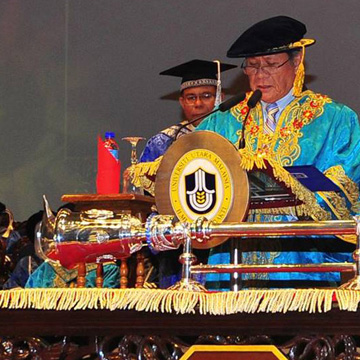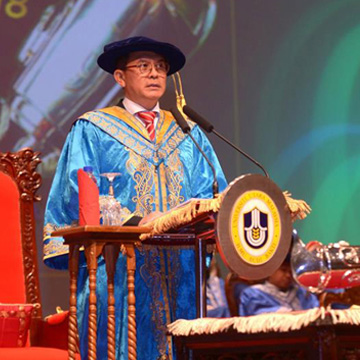Universiti Utara Malaysia (UUM) once again created another history when the subject of Computer Science became the latest subject listed in the Times Higher Education World University Rankings by Subject 2019.
The Vice-Chancellor of UUM, Professor Dr. Ahmad Bashawir Abdul Ghani said, the latest result released on 29 November has indirectly placed UUM among the world's top 601+ university for the subject.
"This is another impressive achievement for the university and this success must be improved and maintained. Besides being listed for this subject, a university must produce at least 500 SCOPUS indexed publications for a period of five years.
"I sincerely hope that more subjects in UUM will also be listed in the Times Higher Education World University Rankings by Subject as this will subsequently increase the reputation of the university in the eyes of the world," he said.
The Times Higher Education Computer Science Subject Ranking 2019 adopts 13 indicators which are classified into five main categories i.e. Teaching: the learning environment (30%), Research: volume, income and reputation (30%), Citations: research influence (27.5%), International outlook: staff, students and research (7.5%), and Industry income: innovation (5%).
On the whole, five UUM subjects are listed in Times Higher Education World University Rankings by Subject 2019. Those subjects are - Business and Economics (Business and Management, Accounting and Finance and Economics and Econometrics), Social Sciences (Geography, Sociology, Communication and Media Studies and Politics and International Studies (including Development Studies), Arts and Humanities (Languages, Literature and Linguistics, Art, Performing Arts and Design and History, Philosophy and Theology), Physical Sciences (Mathematics and Statistics) and Computer Science.
The complete result of the Times Higher Education World University Rankings can be accessed at:
https://www.timeshighereducation.com/world-university-rankings/by-subject.




